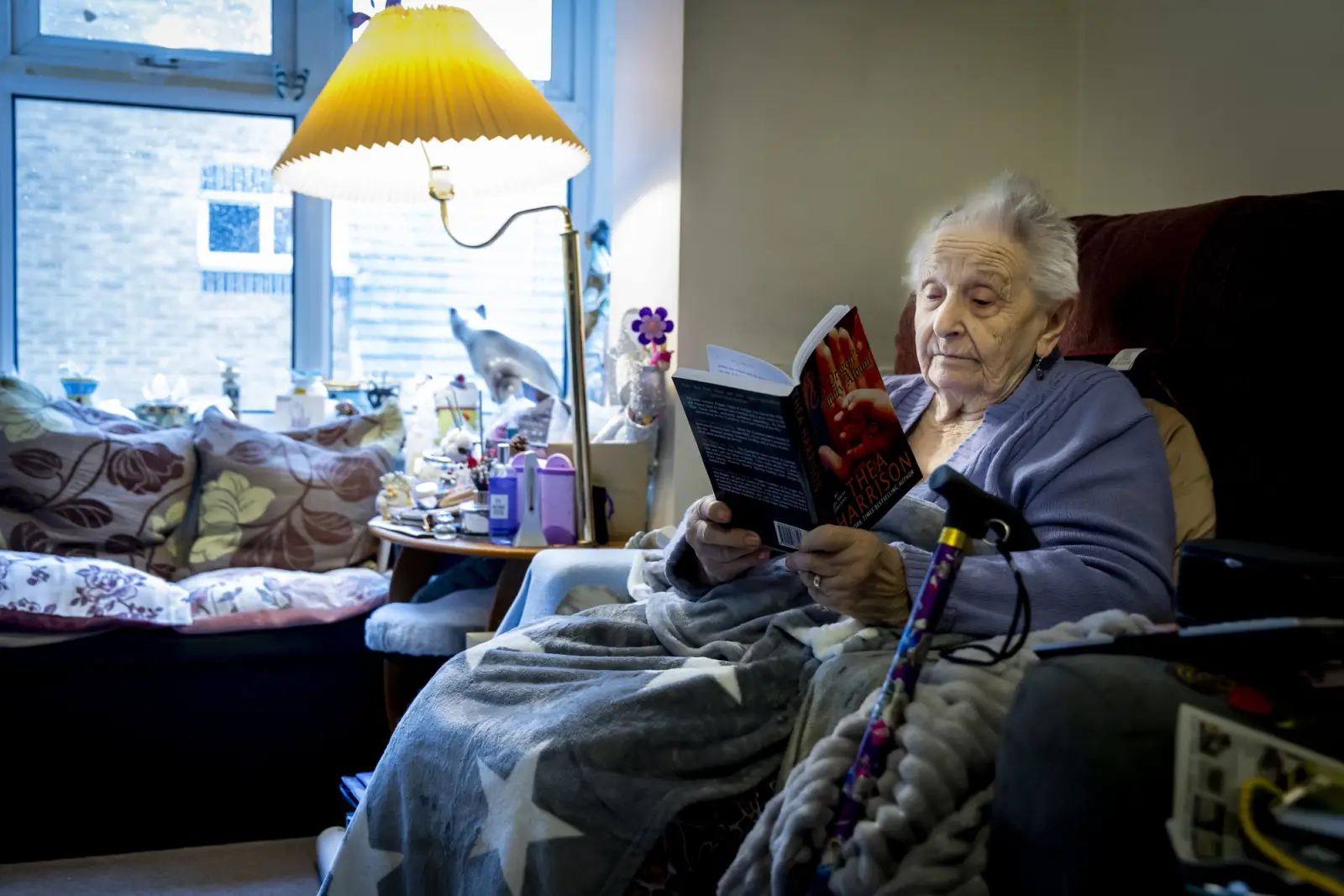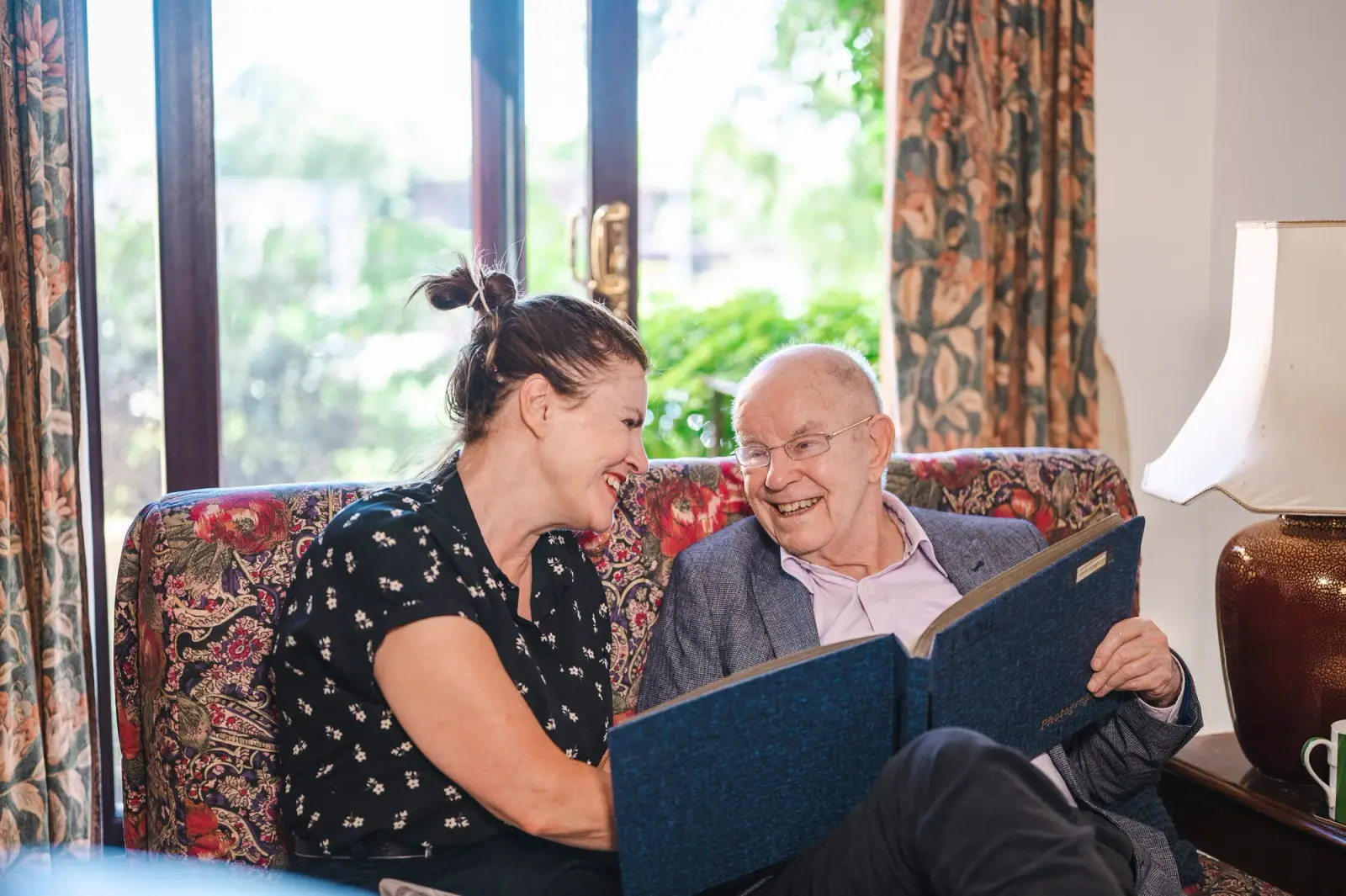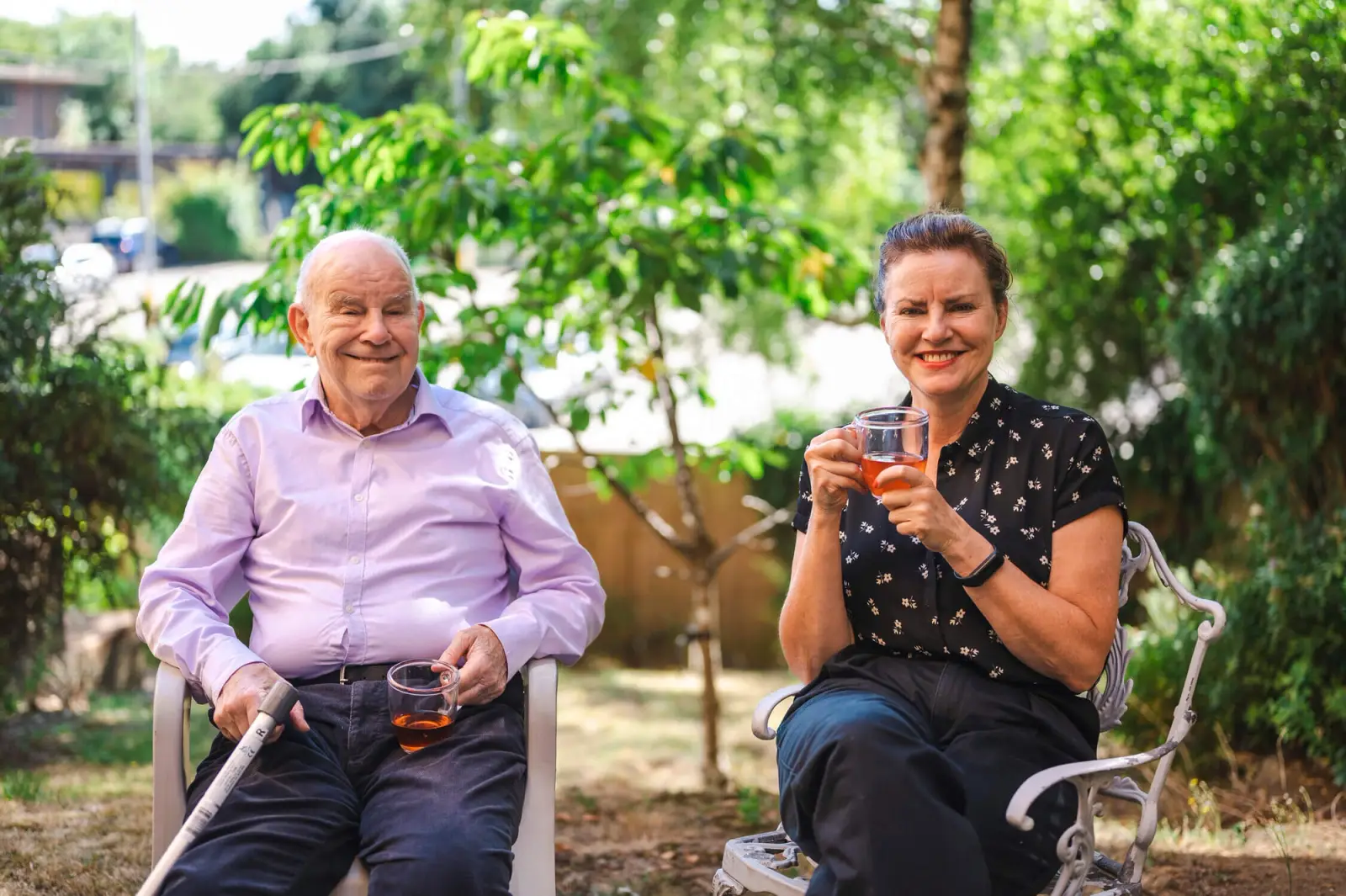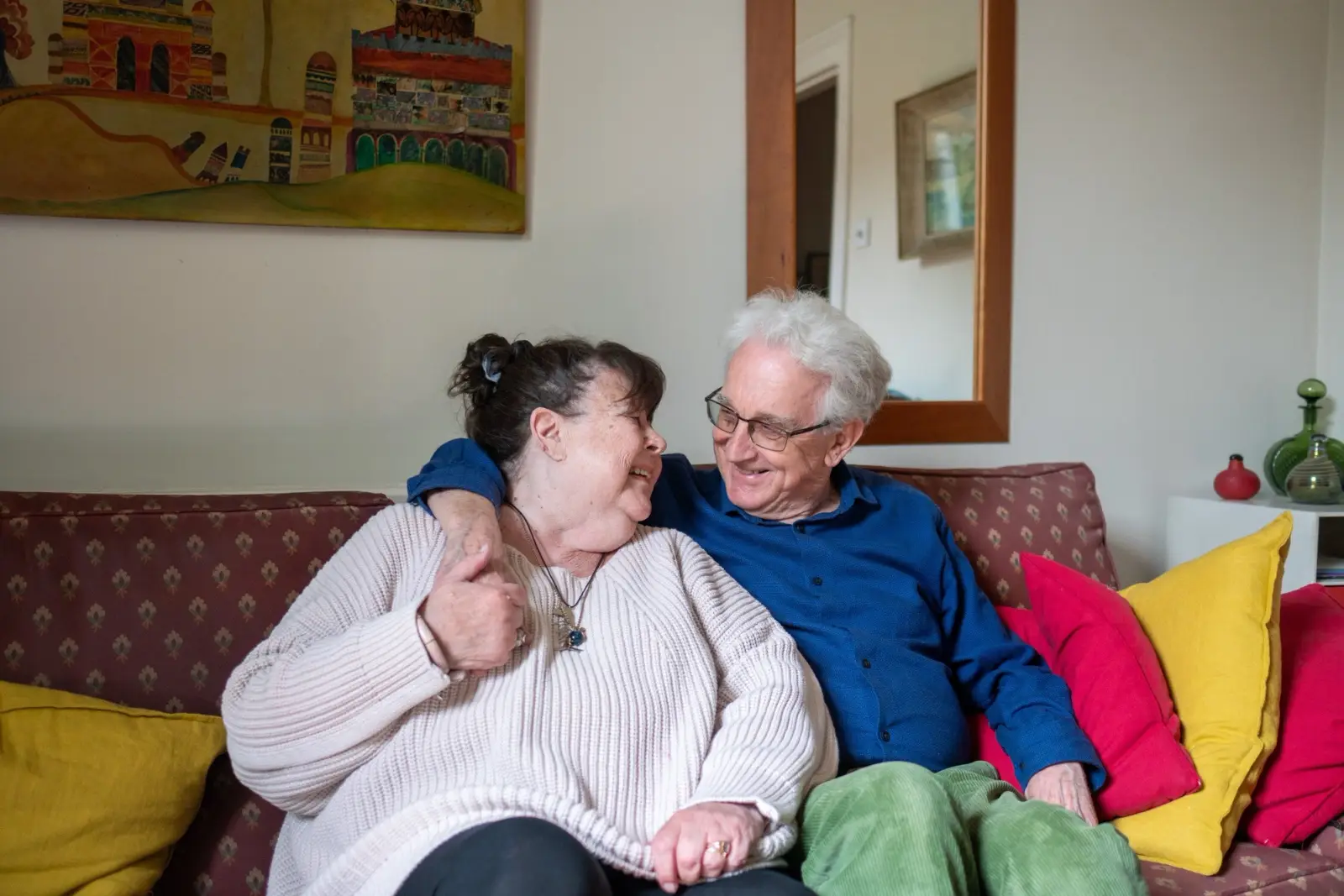Talking about care – Elder factsheet
1 minute read | 23/04/2024

Editorial Contributor
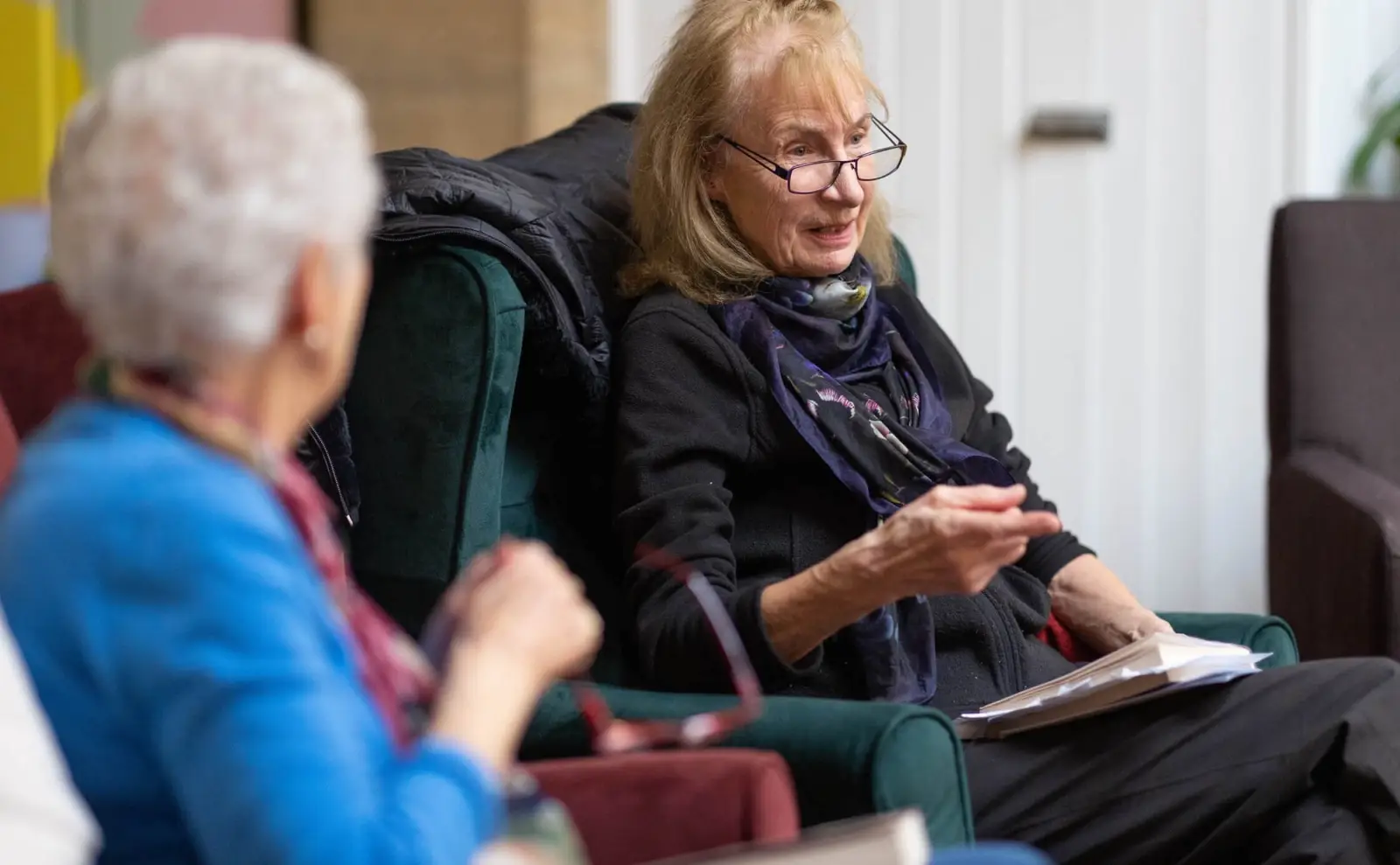
As one of life’s biggest decisions, we believe it’s vital for people to feel they can talk openly about their later life care, and recognise how powerful these conversations can be.
To understand how families across the UK feel talking about care, we surveyed over 700 people who either had an older loved one needing care, or were considering their own care needs. We also asked a Zoe Feldwick – a therapeutic counsellor, and our own clinical team to share their advice for making care conversations more comfortable and constructive.
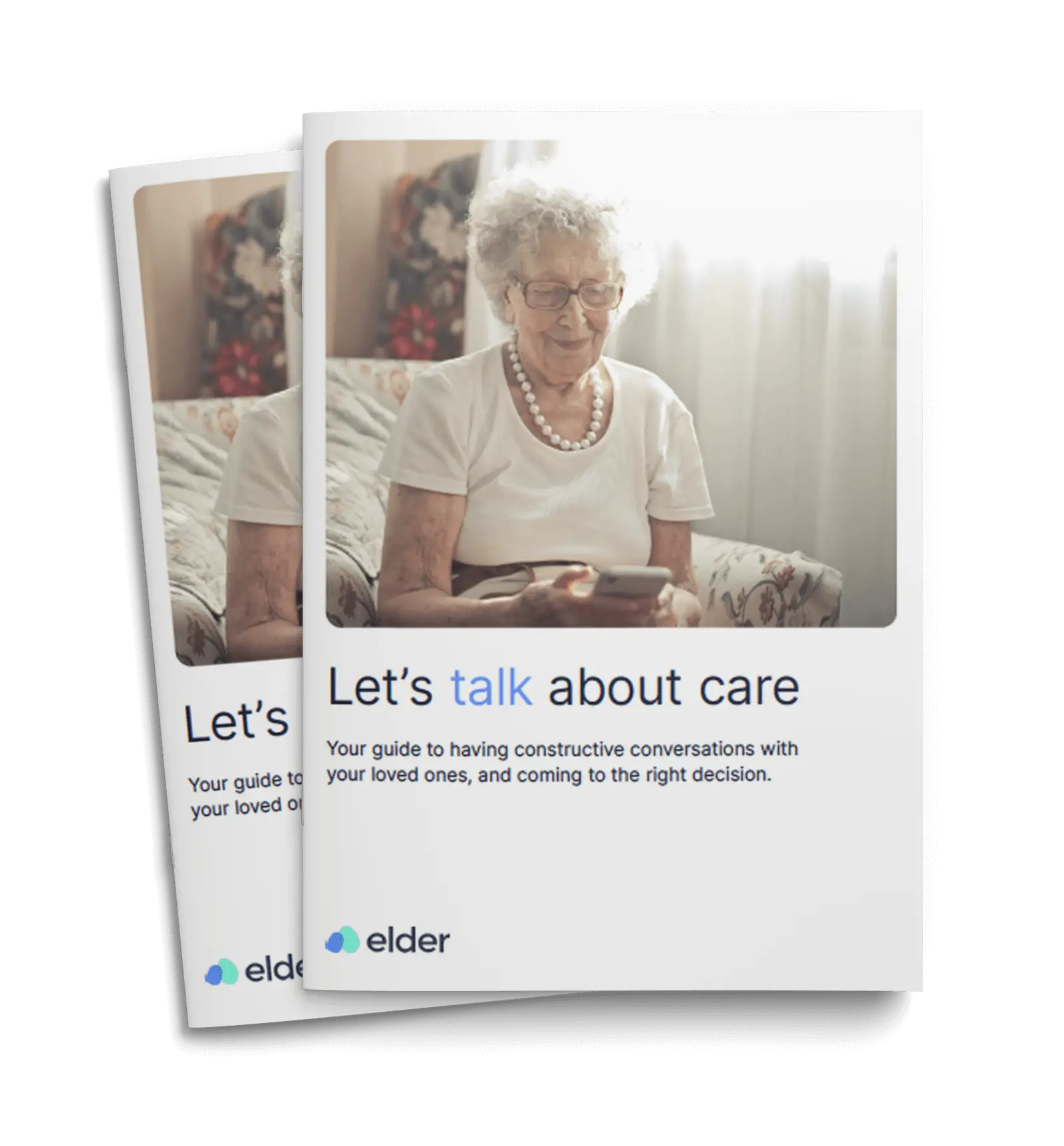
Get the conversation started with our free guide
Unsure how to talk about care with an older loved one? Worried about disagreements or how to tackle difficult topics, such as finances? We asked a therapist from the British Association of Counselling and Psychotherapy, and our own in-house clinical team to share their advice.
Get your guide
of family members would find it difficult to bring up care with an older loved one
of family members felt particularly uncomfortable at the thought of discussing funding and finances with an older loved one.
of older people who felt they needed care had actually had a conversation with their family about it.
of people felt anxious at the prospect of talking about care.
Zoe is an Integrative Therapeutic Counsellor and member of the British Association of Counsellors and Psychotherapists
The most important strategy when approaching a difficult conversation is treating each other with respect and empathy. If a person feels that they are being attacked, blamed or their values and way of life feel under threat then it’s a completely normal reaction to become defensive.
“I” statements can be really helpful when communicating difficult topics, as they focus on taking responsibility for communicating your own feelings and emotions, rather than coming across as blaming or persecutory towards the other person. Try following the format of “I feel (emotion/feeling) when (explanation). For example “I feel anxious when you are at home alone, I worry that there’s no one there to help if an accident happens.”
Tone of voice can also be really important – we can say non-blaming things in a blaming way. Use a soft and even tone when speaking, and try to slow your speaking down if you feel yourself speeding up or rushing through.
For more tips from Zoe, download your free ‘Let’s talk about care’ guide.
Get your guide
Care conversations are often easier in practice
reported feeling ‘uncomfortable’ or ‘very uncomfortable’ after discussing care with an older loved one.
of older people would actually prefer to have a thorough conversation about care before the need for it arises.
of families largely agreed with the older loved one's care wishes.
Alexis is Elder's Director of Clinical and Operations, and a registered social worker
Make sure that your loved ones know that your requests are heartfelt and that you want them to be as happy and healthy as possible.
It is important to work out what you are looking for and set out a list of must haves, nice to haves, and deal breakers.
The person who’ll receive the care may be looking for different qualities and you may be surprised at how they would rank the skills and abilities you value.
For more tips from Alexis, download your free ‘Let’s talk about care’ guide.
Get your guide
Find a carer with the right qualities
Start viewing carers in your area.

Find your ideal carer
We have connected over 5000 families to carers so far.

There’s no question that talking about care may not be completely comfortable, and with social care continuing to dominate headlines it’s no wonder the older generation and their families are feeling apprehensive about having these conversations.
However, a lot of families come to Elder at a time of heightened stress – when mum or dad’s needs have drastically changed and the prospect of care is no longer hypothetical. Being open about our wishes for the future – and starting these discussions as early as we can, gives us a chance to change our perception of care and prepare for this significant life moment. It doesn’t need to be something scary or unknown.
Of course, this requires a societal change too. We need to ensure older people feel confident that their voice will be heard when the time comes. It also needs to be easier for families to access the right information when figuring out how to support loved ones. This is something we’re committed to at Elder – offering advice, protecting the right to choose, and keeping people in control.”


